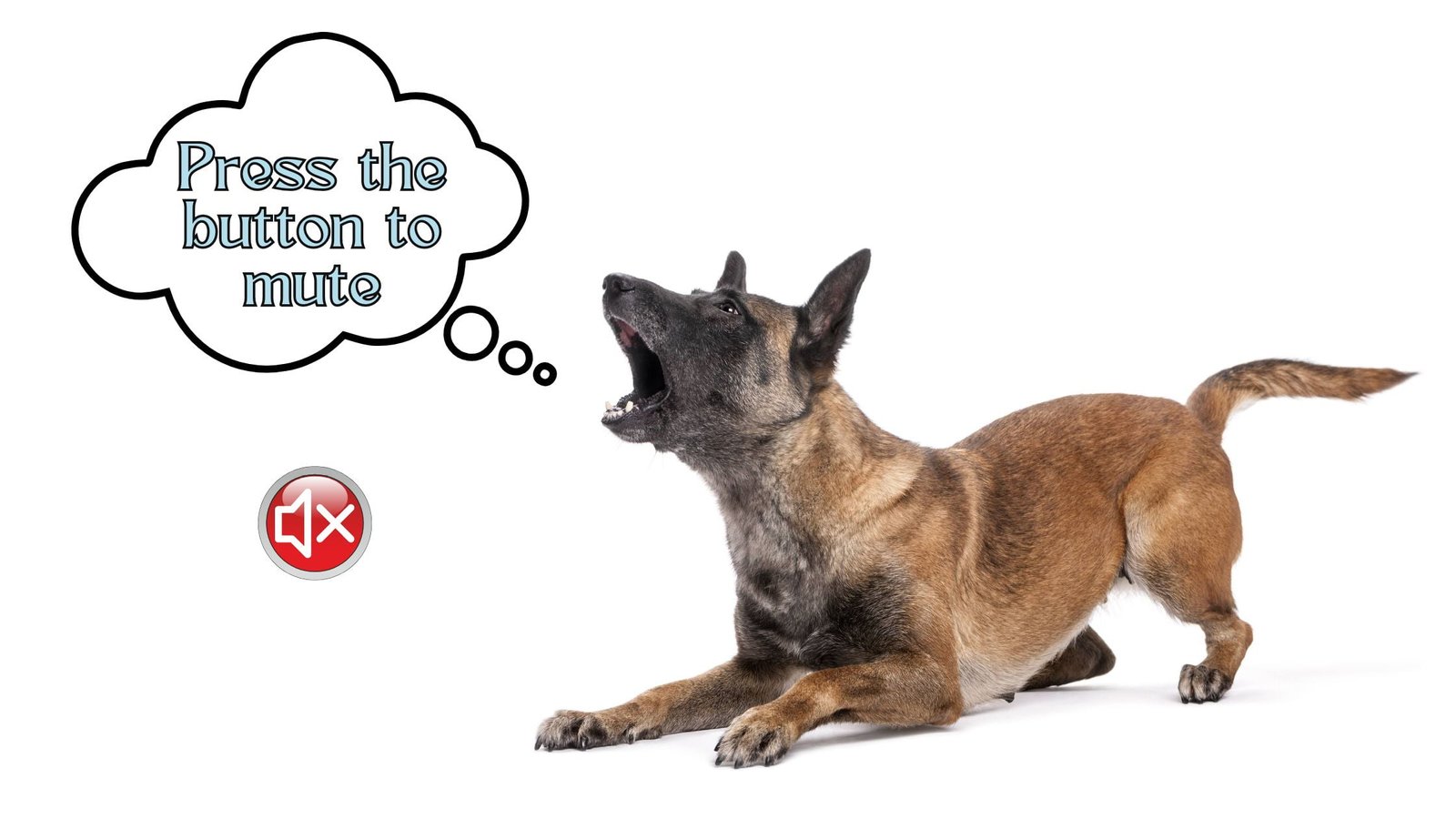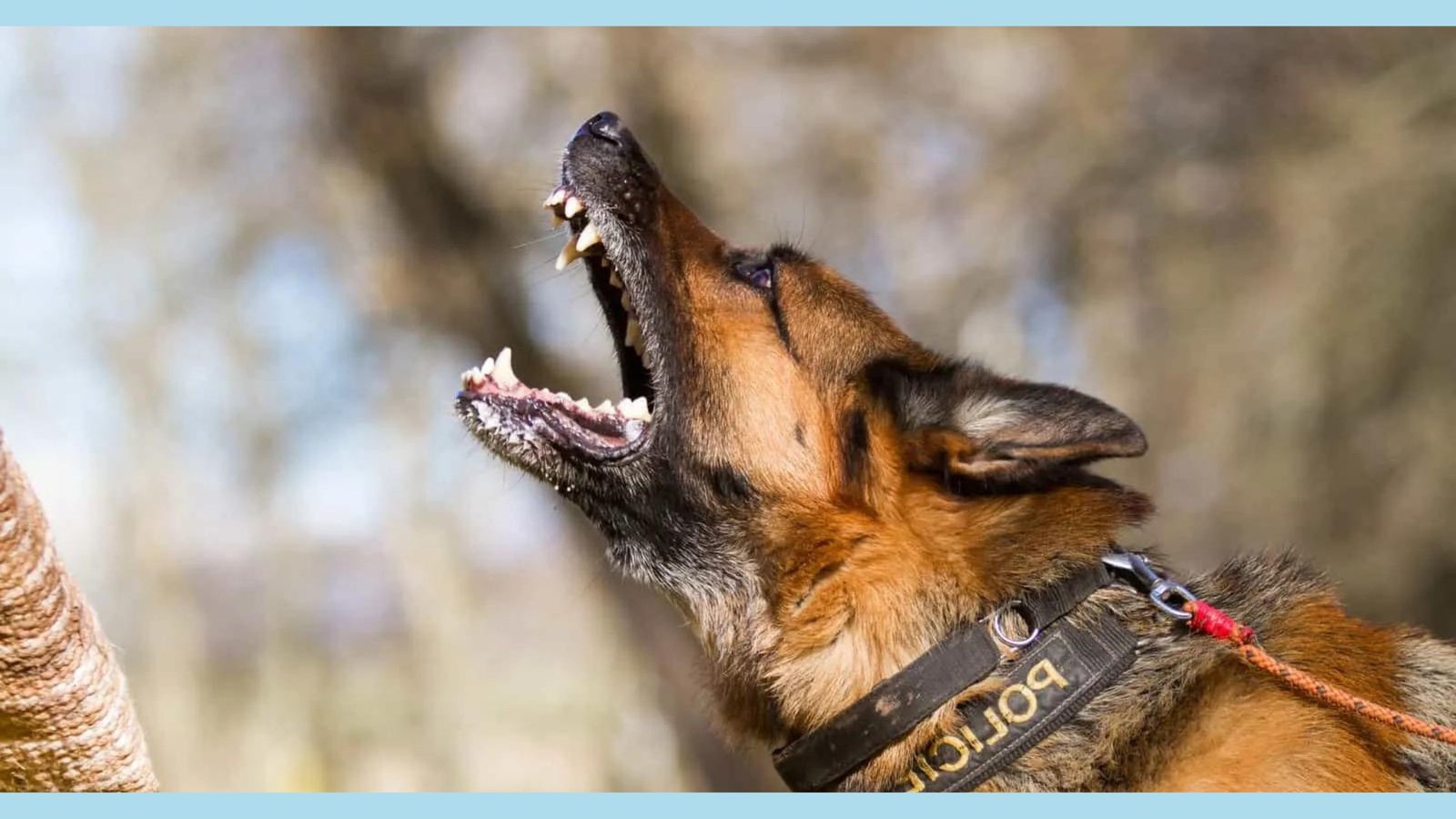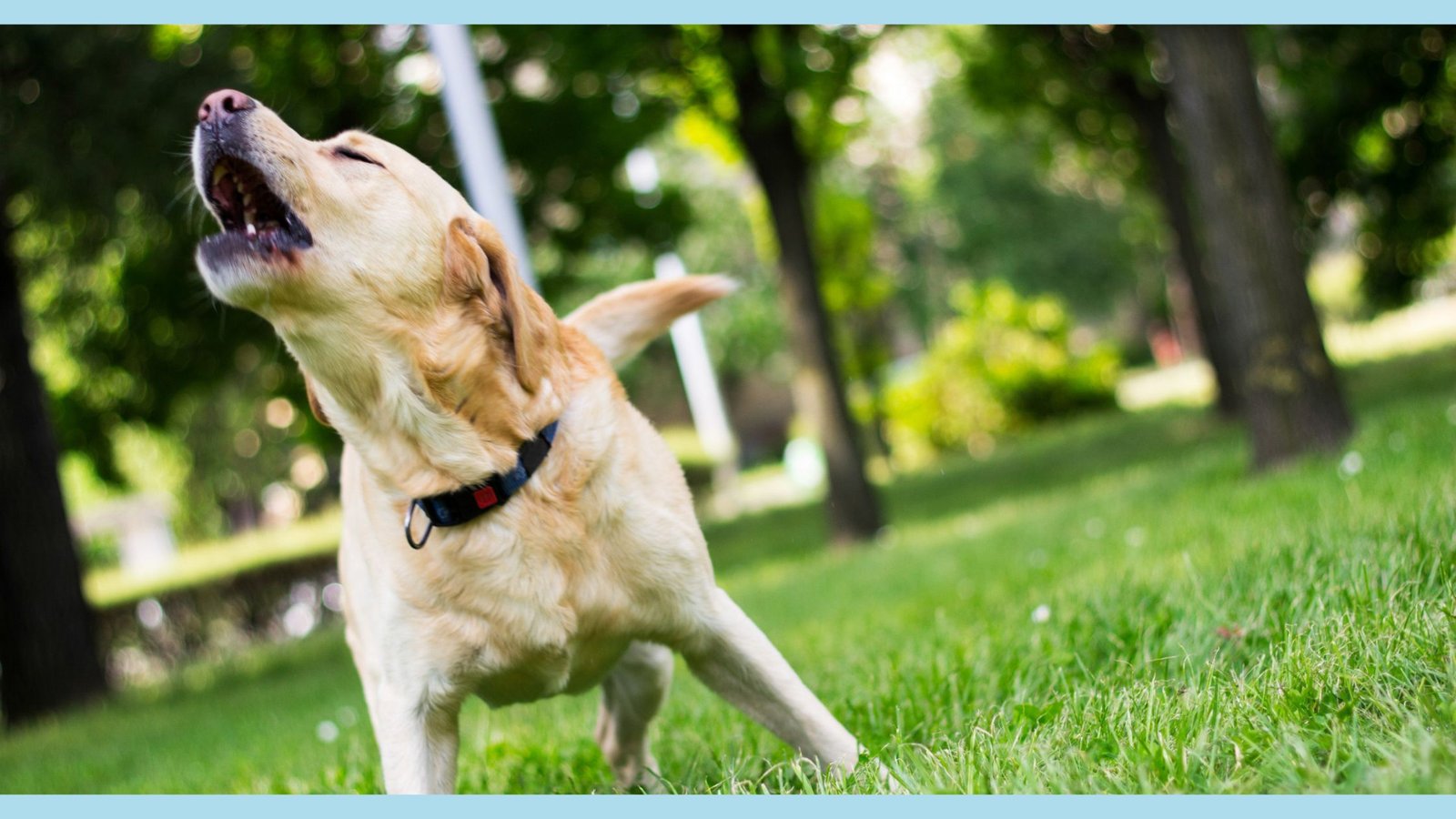
QUIETING NONSTOP BARKING DOGS: EXPERT TIPS
Can’t get your pup to stop barking all the time? It’s tough, but don’t worry! This guide has expert advice to help stop barking dogs from creating disruptions. We’ll explain why dogs bark too much, do they get tired from barking, and share tips to make your home calmer.
Managing Excessive Barking in Dogs
We’ll look at what causes dogs to bark constantly. We’ll also discuss dog behaviors for different breeds. Plus, you’ll learn positive training methods to reduce barking. Exercise, mental stimulation, and expert help can stop problem barking. We’ll debunk myths about barking dogs too.
Follow this guide to better understand your furry friend. With expert tips, behavior plans, and effective tools, you can restore peace and quiet at home. Stop the nonstop barking and build a better bond with your beloved dogs.
Understanding Excessive Barking Dogs
Many dog owners struggle with dogs barking excessively. While barking is normal for dogs, it becomes an issue when it’s constant and disruptive.
Dogs bark for different reasons. Barking dogs may do that to tell their owners about something. They may bark to show feelings. Or they may bark to get attention.
🔑 Key Points: Finding out why your dog barks too much is the first step to fix the problem.
Why Does Your Dog Bark?
To stop your dog from barking too much, you need to know why dogs bark.
Here are some common reasons:
- Protecting their area: Dogs may bark to guard their home from people or animals they see as threats.
- Boredom or loneliness: Dogs may bark when they have nothing to do or when they are alone.
- Fear or worry: Loud noises, new things, or being away from their owners can make dogs bark because they are scared or anxious.
- Wanting attention: Some barking dogs do it to get their owners to play with them, give them treats, or just focus on attention seeking dogs.
Watch your dog closely when they bark. This can help you understand why they are barking. For example, if your dog barks a lot when left alone, they may have separation anxiety.
🔑 Key Points: Knowing exactly why your dog barks too much is important to find the right way to stop it.

BREED-SPECIFIC BEHAVIORS OF BARKING DOGS AND HOW TO ADDRESS THEM
Some breeds of dogs are naturally predisposed to excessive barking more than other breeds. For example, terriers and herding dog breeds such as German Shepherds, tend to be rather voicey. If you happen to keep a barking-inclined breed, it’s necessary to seek help of a professional dog caretaker who understands the breed’s tendencies. They will assist you in coming up with a training program that acknowledges your dog’s predisposition.
🔑 Key Points: Addressing breed-specific behaviors of barking dogs requires a tailored approach and the guidance of a knowledgeable professional.
The Role of Positive Reinforcement in Managing Barking
It’s well-known that positive reinforcement works wonders for dogs that tend to bark a lot. This involves providing your dog with something they enjoy (such as treats) when they exhibit certain behaviors you want to encourage, such as being quiet or stopping barking on command.
- Reward Quiet Behavior: When your dog is settled and quiet, reward and praise this behavior.
- Teach the “Quiet” Command: Allow your dog to bark first, after which say “quiet” in a low but firm tone. The moment he stops barking, reward him.
- Use Positive Reinforcement Training Consistently: Usual practice when using positive reinforcement techniques. Ensure that the entire family uses the same commands and rewards. Yelling or using shock collars can harm your bond with your dog. Instead, reward good behaviors.
🔑 Key Points: Positive reinforcement helps manage excessive dog barking. It strengthens your relationship with your dog.
Effective Ways to Distract and Redirect Your Barking Dog
Distraction and redirection can manage your dog’s barking. When your dog barks, divert their attention. Give them a toy or play fetch. Use treats to lure them away.
If your dog barks at people passing by, block their view. Move them to another room. A dog trainer can help with distraction strategies for your dog.
🔑 Key Points: Redirecting your dog’s focus interrupts barking. It promotes calm behavior.

SOLUTIONS BEYOND BARKING: ADDRESSING UNDERLYING ANXIETY ISSUES
Excessive barking may be a sign of anxiety in barking dogs.
If your dog’s barking seems rooted in fear or stress, address these concerns.
- Identify Anxiety Triggers: Observe your dog’s behavior. Note situations or things that trigger their anxiety and barking.
- Create a Safe Space: Have a separate quiet place in your home where your dog can go to whenever they feel agitated. It could either be a crate or a small room with their comfy couch or bed and their favorite toys.
- Use Calming Aids: Consider using calming aids like pheromone diffusers, soothing music, or pressure wraps to help your dog feel more relaxed.
Seek Professional Help
In situations where your dog has anxiety that is extreme or even when the treatment protocol fails, it is appropriate to contact a veterinary surgeon or a dog behaviorist. They will assist in crafting the medication and behavioral treatment for dog barking and anxiety.
🔑 Key Points: Anxiety problems are the ones that need to be tackled first to alleviate unnecessary barking in dogs as well as improve the general well being of the dog.

THE IMPORTANCE OF EXERCISE AND MENTAL STIMULATION
Physical activity and cognitive challenges are particularly useful for dogs that bark. A dog that is tired and mentally stimulated will not engage in excessive barking to relieve boredom or frustration. Ensure your dog has enough walks, play sessions, or puzzle toys every day. Puzzle feeders, treat dispensing toys, and nose work games are excellent ways to keep your dog occupied and mentally stimulated.
🔑 Key Points: Meeting your dog’s needs for physical activity and mental enrichment can significantly reduce excessive barking and promote a more balanced, contented canine companion.
Professional Intervention: When to Seek Help from a Dog Behaviorist
Sometimes dogs bark a lot. Most times, training and changing their daily life can fix this problem. But some barking dogs do that very badly. Then you might need an expert dog trainer or a dog behavior specialist.
If your dog barks too much all the time, or if they act aggressive or chew things, it’s time to get help. A qualified behavior expert will look at your dog’s needs. They can make a training plan just for your dog to stop the barking and any other issues.
🔑 Key Points: Don’t wait too long to ask a professional for help if your dog’s barking gets really bad or makes your life hard.

WAYS TO CONTROL BARKING: A FAIR LOOK
There are many tools to help stop barking dogs bark to much.
But you must use them carefully, along with training your dog in a kind way.
- Bark Collars: Bark collars are a common way to stop barking. But be careful with them. Choose collars that vibrate or spray citrus smell rather than giving shocks, as shocks can hurt or scare your dog.
- White Noise Machines: White noise machines can cover up outside sounds that make your dog bark, keeping your dog calm.
- Visual Barriers: If your dog barks at things outside your house, putting up barriers like window film or fences can stop them from reacting.
Sometimes we try quick fixes for our dog’s barking. But these methods don’t work forever. The real dog barking solutions lie in training and changing behavior. Otherwise, the barking will come back.
🔑 Key Points:Tools like bark collars and noise machines can help in the short term. However, they should not be the only solution. Use them along with positive reinforcement training for best results.
Make A Long-Term Plan To Change Behavior
To stop excessive dog barking for good, you need a complete behavior plan. This plan should include dog barking training, managing the environment, and positive rewards.
Work with a dog trainer. Together, make a step-by-step plan for your dog. Be patient and keep going, as changing habits takes time.
🔑 Key Points: A well-designed behavior plan is key to success. It will help stop your dog’s barking for good.
The AKC Canine Good Citizen Program Teaches Good Behavior
The AKC Canine Good Citizen program teaches dogs obedience and manners. It helps barking dogs behave well, including barking less. The program trains basic skills that all good community dogs should know.
You should think about joining a CGC class or working with a dog trainer. They can teach your dog skills like sitting calmly and following orders. These skills can help manage excessive barking.
🔑 Key Points: The AKC Canine Good Citizen program offers valuable guidance for pet owners struggling with dogs that bark too much. It provides training to improve a dog’s overall behavior.
Common Misunderstandings About Barking and How to Overcome Them
Many misunderstandings about dog barking make it hard for owners to address the issue properly. Some think barking is unavoidable when owning a dog. Others believe certain breeds naturally tend to bark more.
However, with the right training approach and commitment, even the most vocal dogs can learn to bark less frequently. Owners should learn the facts about barking. They should also work with experienced professionals who can separate myths from reality.
🔑 Key Points: Overcoming common myths about dog barking is crucial for passionate owners seeking a harmonious home environment.

HOW YOUR RESPONSE IMPACTS YOUR BARKING DOGS
How you react to your dog’s barking can significantly influence their behavior. Yelling or giving attention when they bark may accidentally reinforce the behavior, making it harder to stop. Instead, reward your dog when they are quiet and calm. Ignore any barking behavior and only give attention once they stop. By consistently responding this way, your dog will learn that being quiet, not barking, earns the attention they desire.
🔑 Key Points: Being aware of how you react to your dog’s barking is crucial. It helps manage this behavior.
Training Methods Without Punishment
When training your dog not to bark too much, focus on positive techniques and avoid punishment. Yelling, hitting, or using shock collars can make dogs afraid, anxious, and aggressive. This can worsen barking issues.
Instead, work with a professional trainer. They can teach you to reward your dog for being quiet and redirect their attention when barking starts. These positive methods build trust between you and your dog. This makes training more enjoyable and effective for both.
🔑 Key Points: Using positive reinforcement training is key to managing your dog’s barking in a humane and effective way.
Tips for Consistent, Ongoing Training
Consistency is vital when training your dog not to bark excessively. Ensure all family members use the same commands and rewards to reinforce good behavior.
Set aside regular sessions to work on skills like the “quiet” command. Practice these in various settings so your dog can generalize the behavior. Remember, training is ongoing. Continue reinforcing good habits even after improvement in barking.
🔑 Key Points: Steady training helps with too much barking. It helps make a good dog.
A Quick Summary on Barking Dogs: How to Stop Them
In the end, dealing with your dog barking too much needs understanding. You should be kind and give rewards. Find out why your dog barks. Then work with their breed needs. Treat them with care and patience. Exercise and mental games are important for a good relationship.
Get help from an expert dog trainer. They can give you ideas for your dog. Use a training program with tools and devices. Don’t punish your dog. Reward good behavior instead. This will work long-term.
Keep training your dog. Teach them to obey commands. Be dedicated to training. Your dog will be well-behaved and happy. This strengthens your bond. You and your dog can live peacefully. Thank you for learning to handle barking. Treat your dog with care and love.
This time we decided to point you at Dogs Trust to learn more on this topic! If their article doesn’t help you much either, you can find bellow their support phone line to call for help:

Dogs Trust Support Phone Line: 03030036666
Their free telephone service is open Monday to Saturday, 9.30am – 5pm. or you can write them online!
We wish you good luck!









